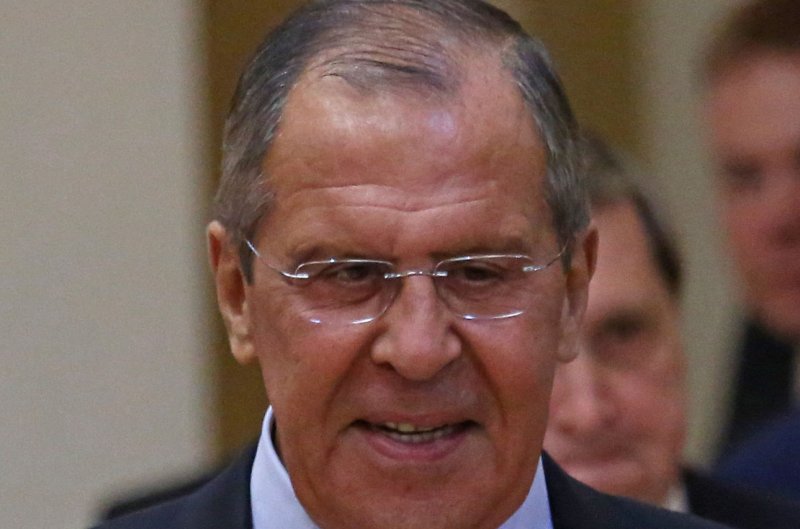Russian Minister of Foreign Affairs Sergei Lavrov has energy on his agenda while hosting his Saudi counterpart in Moscow. File Photo by David Silpa/UPI |
License Photo
Aug. 29 (UPI) -- Russia's foreign minister on Wednesday hosts his Saudi counterpart to discuss, among other things, stability in the global oil market, state media reported.
Russian Foreign Minister Sergei Lavrov is set to discuss conflicts in Syria and Yemen, as well as bilateral issues related to the energy sector.
Russia sits on a committee monitoring compliance with a program led by the Organization of Petroleum Exporting Countries meant to keep supply on pace with demand through coordinated production constraints. Russia is also the largest non-OPEC member with its signature on the agreement.
According to Russian news agency Tass, the Russian foreign minister is emphasizing "the important stabilizing effect of a close Russia-Saudi coordination concerning the situation on the global oil market in relation to multi-sided OPEC+ agreements" during meetings with Saudi Foreign Minister Adel al-Jubeir.
Lavrov has put a geopolitical component behind Russia's position on the global energy stage. He said last year that European leaders in Brussels were getting duped into paying for "overpriced American liquefied natural gas."
U.S. President Donald Trump views LNG as a way to expand American leverage overseas. Russia and Norway are Europe's main natural gas suppliers and some European leaders have raised concern about the monopolistic practices of Russian energy companies like Gazprom.
For oil, Kirill Dmitriev, the CEO of the Russian Direct Investment Fund, said coordination with Saudi Arabia, the de facto leader of OPEC, meant Russia was demonstrating a lead role in energy markets.
With spare capacity, the amount of oil a producer can pump on short notice, at a premium, the market is bracing for the loss of millions of Iranian barrels in November when U.S. sanctions take effect. Russia said it could add about 175,000 barrels of oil per day in the second half of the year.
Economists at OPEC expect Russia's economy to linger in a period of lackluster growth. Growth in gross domestic product is forecast at 1.8 percent this year and in 2019 as its ruble remains under pressure from U.S. sanctions.
Among non-OPEC producers, it's one of the main contributors to expectations of production growth.















